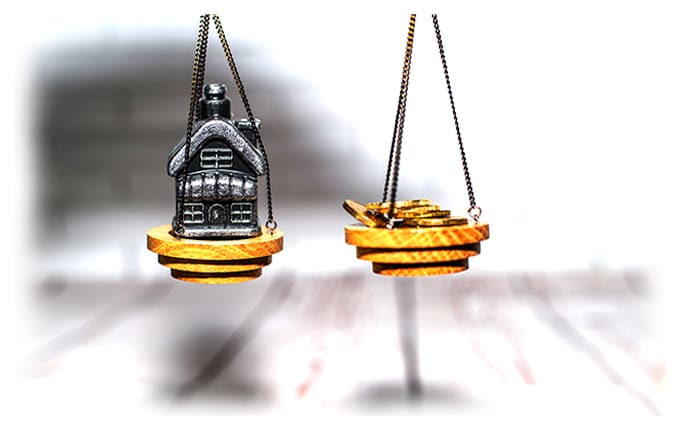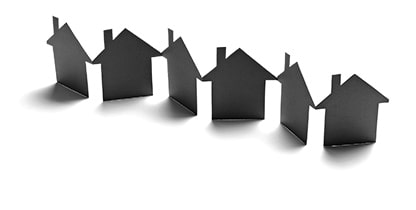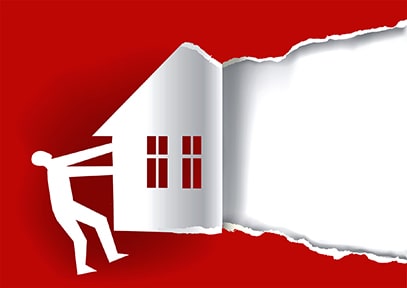Abu Dhabi's Strata Law and its Implications
“Real estate cannot be lost or stolen, nor can it be carried away. Purchased with common sense, paid for in full, and managed with reasonable care, it is about the safest investment in the world.” - Franklin D. Roosevelt
 The strata law means the development of created building property or the gated community into various layers. Each layer is then subdivided into at least one or more units along with common areas which form the part of the property. The real estate industry has been expecting new laws to expand its growth. Jointly owned property law for Abu Dhabi is found in Law No. 3 of 2015 which governs the Real Estate Sector in the Emirate of Abu Dhabi. This law contains what is ordinarily referred to as strata laws which are titled ‘Jointly Owned Floors, Flats and Parts’. Subsequent implementation of regulations to the law through the Department of Municipal Affairs Resolution Number 245 of 2015 ‘the Executive Regulations Concerning the Ownership of Jointly-Owned Properties and Owners’ Association’. The strata regulations also refer to standard strata documents that will be issued by the Department of Municipal Affairs (‘DMA’). The closest comparison comes from Dubai through Dubai Law 27 of 2007 ‘Concerning the Ownership of Jointly Owned Real Property in the Emirate of Dubai’ along with the Direction for Association Constitution, Direction for Jointly Owned Property Declarations, and Direction for General Regulation Concerning Jointly Owned Properties.
The strata law means the development of created building property or the gated community into various layers. Each layer is then subdivided into at least one or more units along with common areas which form the part of the property. The real estate industry has been expecting new laws to expand its growth. Jointly owned property law for Abu Dhabi is found in Law No. 3 of 2015 which governs the Real Estate Sector in the Emirate of Abu Dhabi. This law contains what is ordinarily referred to as strata laws which are titled ‘Jointly Owned Floors, Flats and Parts’. Subsequent implementation of regulations to the law through the Department of Municipal Affairs Resolution Number 245 of 2015 ‘the Executive Regulations Concerning the Ownership of Jointly-Owned Properties and Owners’ Association’. The strata regulations also refer to standard strata documents that will be issued by the Department of Municipal Affairs (‘DMA’). The closest comparison comes from Dubai through Dubai Law 27 of 2007 ‘Concerning the Ownership of Jointly Owned Real Property in the Emirate of Dubai’ along with the Direction for Association Constitution, Direction for Jointly Owned Property Declarations, and Direction for General Regulation Concerning Jointly Owned Properties.
The governing authority for jointly owned property in Dubai is the Real Estate Regulatory Authority and in Abu Dhabi, it is the Department of Municipal Affairs (DMA). The Abu Dhabi strata regulations were published in the Abu Dhabi Gazette, it initially appears there might be less discretion accessible to the DMA, but the legislation itself gives some discretion to the DMA.
Similarities between RERA and DMA
Consumer protections: There is an elevated degree of consistency across the disclosure statements and consumer protections in Abu Dhabi and Dubai. In both cases, the developer is liable for the damages for the contents of the disclosure statement for two years from the date the unit is transferred to a purchaser, including any subsequent purchaser. In both laws is the developer will be liable for defects. The developer stays liable for structural defects in the building for 10 years from getting a completion certificate. For defective building establishments, the defect liability period is one year and these items should be fixed or replaced.
Supply agreements: While laws relating to supply agreements in both jurisdictions function in a similar manner. In Abu Dhabi a supply agreement should not surpass three years without the endorsement of the Municipality of Abu Dhabi. If approval is given, a supply agreement must never surpass 25 years. The Abu Dhabi strata law gives broad requirements on conditions that should be included in supply agreements for both supplies of goods and supply of services. The Dubai strata law matches the necessities for supply agreements but expressly prohibits the use of sub-contractors.
Owners’ association manager: There are few distinctions in the rules relating to owners’ association managers, and they will be able to manage their operations across both jurisdictions in a very similar manner. The maximum term for an association manager is three years. In contrast, in the Dubai strata law after three years, an association manager can be appointed for a further term. In Abu Dhabi, the strata law expresses that the relationship between an association manager and the owners’ association is based on trust and honesty.
Difference between RERA and DMA
 The administrator: The position of administrator of the owners’ association is the developer or another person who is delegated by the Chairman of the DMA to do the owners’ association’s operations. The administrator bears liability regarding the affairs of the owners’ association including the liability for its management and activity of the common areas, public services, and service facilities.
The administrator: The position of administrator of the owners’ association is the developer or another person who is delegated by the Chairman of the DMA to do the owners’ association’s operations. The administrator bears liability regarding the affairs of the owners’ association including the liability for its management and activity of the common areas, public services, and service facilities.
Article 40 of the Abu Dhabi strata regulations sets out that the administrator might be appointed by the DMA in unique circumstances, taking into account factors as the project area. The drafting of Article 66 of the law expresses that despite how an owners’ association is to be constituted, the Chairman of the DMA may set out to substitute the owners’ association for the developer or any other person.
When there is an administrator the owners’ association will only have less influence. They will be only allowed to express opinions and give advice on the management, operation, maintenance, and repair of the common areas in accordance with the master development statement. the owners’ association might not interfere with the duties devolved to the administrator and might seek help from the DMA if the administrator fails in their duties.
 As per the regulation, the owners’ association might not ballot, vote, or hold meetings to talk about the management, maintenance, operation, and repair of the common areas. The utilization and implementation of this provision will be one of the vital areas to watch with the Abu Dhabi strata law.
As per the regulation, the owners’ association might not ballot, vote, or hold meetings to talk about the management, maintenance, operation, and repair of the common areas. The utilization and implementation of this provision will be one of the vital areas to watch with the Abu Dhabi strata law.
Conclusively, looking on both jurisdictions’ strata laws, strata property developers and owners’ association managers may have easily transitioned between the two Emirates. Abu Dhabi has various new concepts in its strata law and it will further provide guidance on implementation, regulation, and direction to issue. The Abu Dhabi strata law provides scope for the exercise of discretions in some areas that will be important to follow.
 Русский
Русский
 English
English 官话
官话 português
português عربي
عربي
 Türk
Türk 






.jpg)




